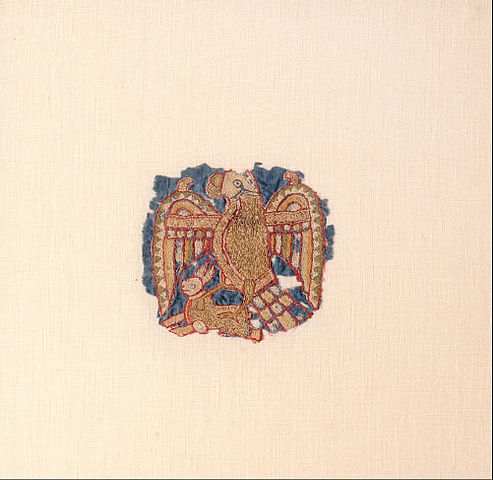Avoiding Sentence Fragments

Sentence fragments are always incorrect in academic papers or theses.
As you know, a fragment is something incomplete. Fragments can occur when the writer tries to divide up a longer sentence into shorter ones without the correct punctuation.
Thammasat University is renowned for its social science faculties. Including sociology, history and philosophy.
In the above, the phrase Including sociology, history and philosophy is a fragment because it cannot stand alone as a sentence, even though it is presented as one. Fortunately, it is easy to fix such a mistake, simply by inserting a comma where a full stop was placed previously:
Thammasat University is renowned for its social science faculties, including sociology, history and philosophy.
Often this type of fragment results from writers trying to reproduce speech too closely. While you might be able to make clear what you mean if you say the following words, it is not polite to challenge readers with incorrect punctuation, leaving them to guess your meaning.
During exam time the TU Libraries close at midnight. Just when I start to feel ready to study.
Again, the way to make the above acceptable would be to remove the attempt at a separate sentence, and make it all part of a single statement:
During exam time the TU Libraries close at midnight, just when I start to feel ready to study.
If you remember that a sentence has only one speaker, you will likely continue the logic of a statement until your sentence ends naturally. Otherwise you can seem to stop to answer questions that no one has asked you.
I must move out of my family home. Because I cannot stand living with my sister any more.
While the above may sound natural as dialogue from a television soap opera, when you are writing, no one stops you to ask Why? So you must fit any explanation into your sentence as a natural addition to your thoughts.
I must move out of my family home because I cannot stand living with my sister any more.

Other forms of rewriting to avoid fragments.
Sometimes eliminating fragments requires more rewriting, although it should not be too time consuming or difficult to do so.
I did very badly on my midterm exam. Which is why I think I may fail the course.
In addition to replacing the full stop with a comma, the above fragment may also be rewritten as follows:
Because I did very badly on my midterm exam, I think I may fail the course.
Note that the above revision has the advantage of eliminating some excess words that do not add anything to your statement. The more directly and concisely you can express yourself, the better. Remember that when you are writing a thesis or academic article, the prose is meant to be more formal than in a private letter or even a magazine article.
Where is the verb?
Sometimes, to be stylish, writers in informal contexts will leave out the verb in a sentence:
T-shirts and snack foods everywhere. My room at home is a mess.
While this may be evocative and perfectly describe your room at home, if you are trying to write a formal essay or article, you will need to add a verb to make this acceptable.
T-shirts and snack foods are everywhere. My room at home is a mess.
If you keep in mind that a sentence must contain a subject as well as a verb or action, it is likely you will avoid fragments. Sentences are meant to be complete thoughts. It is not enough to start with a capital letter and end with a full stop. Sentences can be very short, but they must be complete. So an example of a complete sentence is the following:
Malivalaya sneezed.
There is a subject, Malivalaya, and a verb, to sneeze. The two-word sentence gives us all the information we need for the moment, and is complete in itself. The reader is not left asking such questions as Who? or What did they do? The reader may wonder why Malivalaya sneezed, but that matter may be addressed in the next sentence.
Smelling the Nuea pad prik, Malivalaya sneezed.
Note that the phrase
Smelling the Nuea pad prik
is a fragment because it lacks the required subject. Who is smelling the Nuea pad prik? We are not told. Therefore something needs to be added before these words can add up to a complete sentence.
Obsessed with Pong Lang Sa On, Saranyu Winaipanit, and Sornram Teppitak.
The above fragment likewise lacks a subject. Clearly it refers to someone who is very interested in pop stars and probably watches too much TV, but we do not know exactly who is being referred to.
My grandmother is obsessed with Pong Lang Sa On, Saranyu Winaipanit, and Sornram Teppitak.
By adding a subject, we have made the fragment into a clear sentence, even if we might feel bad about the old lady being so obsessed with pop stars.
When such fragments appear in serious contexts, they can distract from the information you are trying to convey:
According to a legend in the Northern Chronicles, in 903, a king of Tambralinga invaded and seized Lavo and installed a Malay prince on the Lavo throne. The Malay prince was married to a Khmer princess who had fled an Angkorian dynastic fight. Much bloodshed and violence. The son of the couple fought for the Khmer throne. Courageously. He was crowned Suryavarman I. Bringing Lavo under Khmer domination. Suryavarman I also expanded into Isan, building many temples.
While this might be appropriate for a description in a film scenario where you are trying to be evocative without caring too much about grammar, for a paper it should be smoothed out into complete sentences, each containing a subject and verb:
According to a legend in the Northern Chronicles, in 903, a king of Tambralinga invaded and seized Lavo and installed a Malay prince on the Lavo throne. The Malay prince was married to a Khmer princess who had fled an Angkorian dynastic fight with much bloodshed and violence. The son of the couple fought courageously for the Khmer throne. He was crowned Suryavarman I, bringing Lavo under Khmer domination. Suryavarman I also expanded into Isan, building many temples.

Dependent fragments
If your fragment begins with a word such as while, although, until, because, when, if, as, or whenever there are two possible remedies. You can combine the fragment containing one of these dependent words with another existing sentence. Or you might just be able to cut out the dependent word without losing anything in terms of the information you are trying to convey.
When my roommates and I cannot agree on what time to eat dinner.
can easily be changed to
My roommates and I cannot agree on what time to eat dinner.
among other alternatives.
Fragments with for example.
The words for example often tempt writers of Thai English to create fragments.
I like going to Thai beaches. For example, Phi Phi Don, Koh Phi Phi; Khao Lak; Chaweng, Koh Samui; Haad Rin, Koh Phangan; Koh Samet; and Bang Bao, Koh Chang.
In the above, the writer has mentioned many beaches but this is still a fragment because the phrase lacks a verb:
For example, Phi Phi Don, Koh Phi Phi; Khao Lak; Chaweng, Koh Samui; Haad Rin, Koh Phangan; Koh Samet; and Bang Bao, Koh Chang.
Once you become aware that in a formal essay this would need to be fixed, it is easy do so:
I like going to Thai beaches, such as Phi Phi Don, Koh Phi Phi; Khao Lak; Chaweng, Koh Samui; Haad Rin, Koh Phanga; Koh Samet; and Bang Bao, Koh Chang.

(all images courtesy of Wikimedia Commons)

